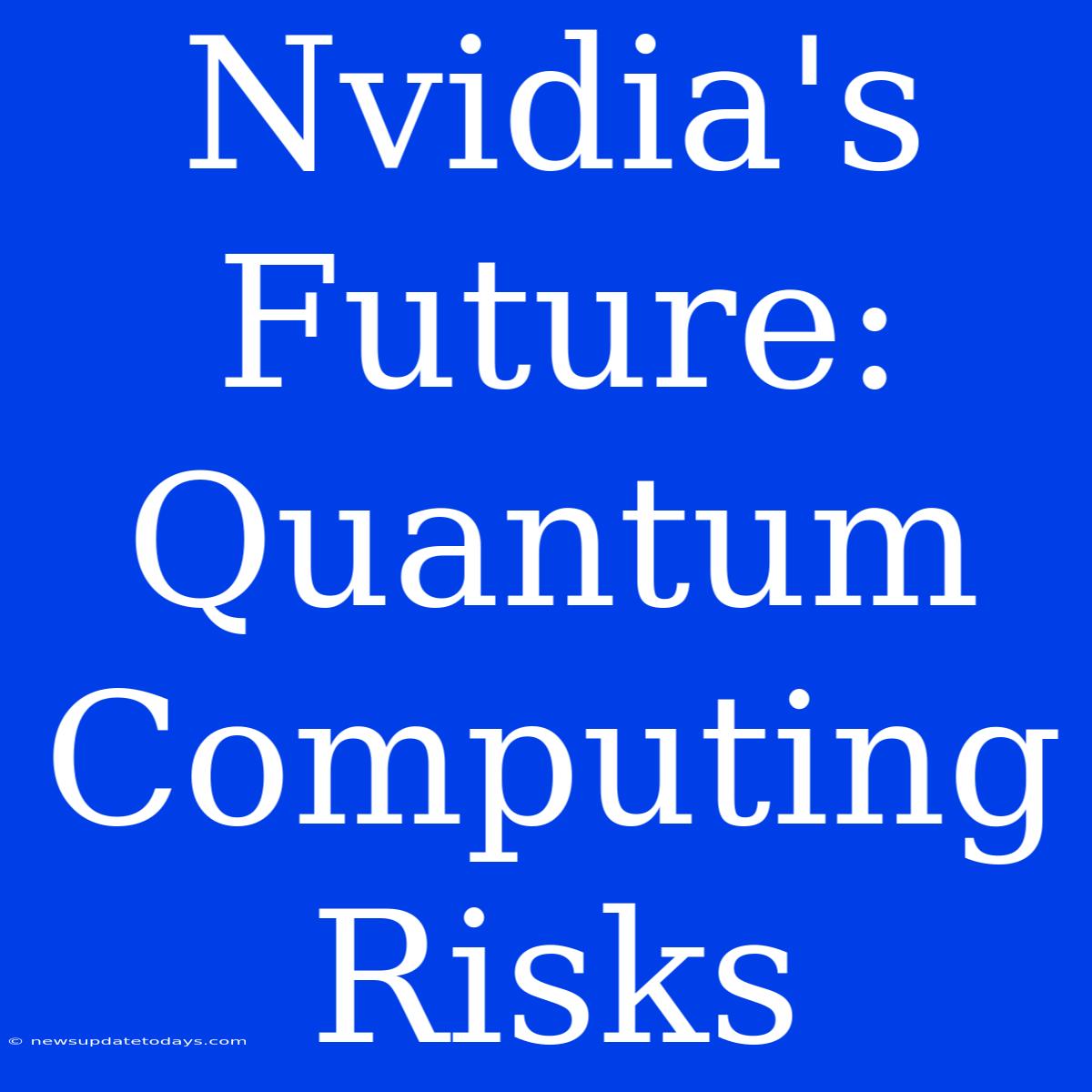Nvidia's Future: Navigating the Quantum Computing Risks
Nvidia, a titan in the GPU market, faces a fascinating yet uncertain future. While currently dominating the landscape of artificial intelligence and high-performance computing, the looming shadow of quantum computing presents both opportunities and significant risks. This article explores these potential disruptions and examines how Nvidia might navigate this evolving technological frontier.
The Quantum Threat: A Looming Disruption?
Quantum computing, with its potential to solve currently intractable problems, poses a considerable long-term threat to Nvidia's core business. Specifically:
- Accelerated AI Development: Quantum computers could dramatically accelerate the development of AI algorithms, potentially rendering current GPU-based training methods obsolete. This could significantly impact Nvidia's revenue streams from data centers and high-performance computing clusters.
- Cryptography Vulnerability: Quantum computers pose a significant risk to current encryption methods. The security industry, a crucial market for Nvidia's technologies, would need a complete overhaul, potentially requiring entirely new hardware solutions, potentially bypassing Nvidia's current dominance.
- Market Shift: The emergence of quantum computing could trigger a massive shift in the computing landscape, creating entirely new markets and rendering current hardware, including GPUs, less relevant. This necessitates adaptation and innovation from Nvidia to remain competitive.
Nvidia's Potential Responses: Adapting to the Quantum Age
Nvidia isn't standing idly by. Several strategies could mitigate these risks:
- Quantum-Resistant Cryptography: Investing in research and development of quantum-resistant cryptographic algorithms is crucial. This will not only safeguard Nvidia's own systems but also establish them as a leader in the post-quantum security landscape.
- Hybrid Computing Strategies: Exploring hybrid computing models that integrate classical and quantum computing resources could offer a pathway forward. Nvidia could develop solutions that leverage the strengths of both architectures, ensuring a smoother transition to the quantum era.
- Quantum-Accelerated AI: Instead of being threatened, Nvidia could become a key player in accelerating quantum AI development. By developing specialized hardware and software to support quantum computing, Nvidia could maintain its position as a critical technology provider. This might involve developing quantum-classical hybrid systems.
- Strategic Partnerships: Collaborating with leading quantum computing companies will give Nvidia invaluable insights and access to cutting-edge technologies. This collaborative approach would facilitate faster innovation and better positioning in the emerging market.
Conclusion: A Future of Uncertainty and Opportunity
The rise of quantum computing presents a significant challenge to Nvidia's future dominance. However, it also presents a wealth of opportunities for innovation and adaptation. By proactively investing in research, forging strategic partnerships, and embracing hybrid computing strategies, Nvidia can navigate this technological shift and secure its position as a leader in the next generation of computing. The company's future success hinges on its ability to anticipate and respond effectively to the quantum revolution. The coming decades will reveal whether Nvidia masters this challenge or becomes a victim of it.

